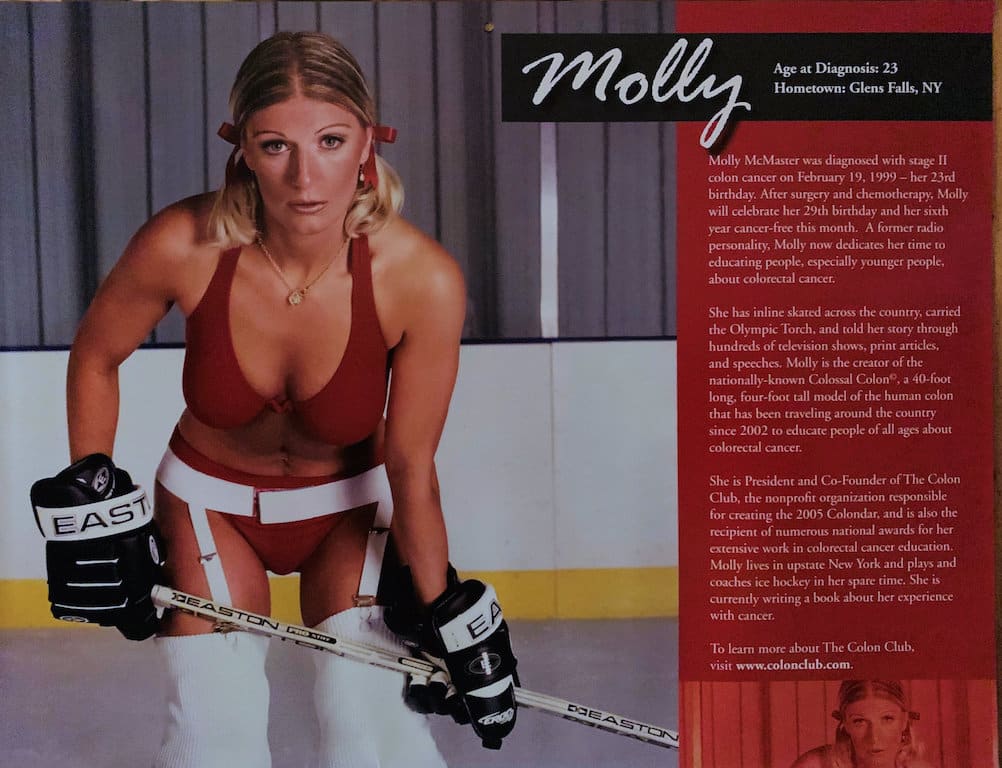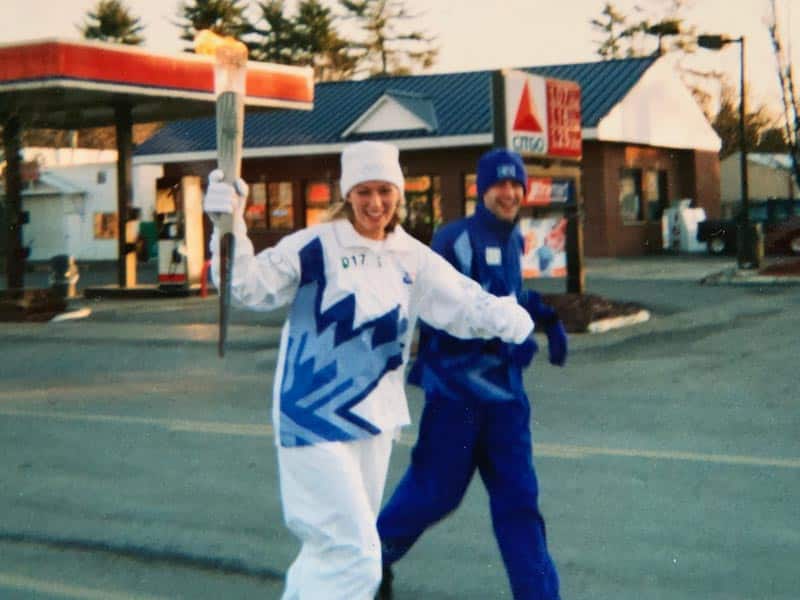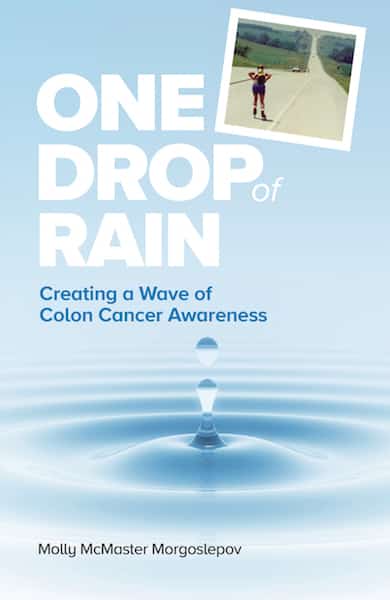Over 10 years ago, I "bared my scar" to tell my story of surviving colon cancer for the 2009 Colondar, a calendar raising awareness of colorectal cancer under age 50. I'll never forget the day I first learned about the project by The Colon Club. I realized I wasn't alone - there were other young survivors like me. I applied and a few months later, Molly McMaster called to invite me to upstate New York for a photo shoot. What I didn't realize at the time was I'd soon become part of a "colon family." I wouldn't be who I am today, or where I am, if not for The Colon Club - an organization Molly co-founded. She is one of my heroes, and it's an honor to share her latest project, released for her 20th anniversary of surviving colon cancer: "One Drop of Rain: Creating a Wave of Colon Cancer Awareness."

Q. When did you start writing the book?
I started as an English major in college and always planned to be a writer.
Thankfully, I journaled quite a bit throughout my diagnosis and treatment, because I never would have remembered all the little details.
It took me the better part of 20 years to finish, and while it feels like it took forever, I'm so glad I waited because I don't think the ending worked until now... when the ripples are much clearer.
Q. You write about being misdiagnosed. How did you deal with it, and what is your encouragement to other young survivors with the same experience?
Honestly, there's nothing I would change about my story now.
I'm not sure it would have happened the way it did if I hadn't walked that path, if that makes sense.
I'm not mad about being misdiagnosed. It motivated me to do something.
It's hard to say that to someone who is newly diagnosed, but for me, doing something about it allowed me to make sense of why it happened to me.
For someone just starting this path, what part of colon cancer awareness are you passionate about? Advocacy? Education? Lobbying?
Whatever it is that you connect with, follow that path with the hope it will help you to heal.

Q. Your parents were so involved. Tips for parents facing this?
Oh, wow. As a parent myself now, I can't even fathom going through something like this with my own kids.
Ironically, my best friend growing up had a son with a brain tumor just over a year ago and it just changed my whole perspective.
I never thought about it from the caregivers view. (The Colon Club started adding caregivers to the On the Rise magazine, and I think it's amazing.)
Something that upset me so much was being treated like a kid. My doctor kept talking to my parents and not to me.
I think it's really important, and I've heard similar things from other young patients and survivors, to be a part of the process. Make decisions together.
Q. What's your advice for other long-term survivors transitioning into seasons where cancer isn't as much a part of life?
I am so grateful for the time I spent raising awareness of colon cancer. I truly feel like I helped people.
There is no price tag for that.
That said, when it came time for me to start backing away from the "colon world," if you will, it took me awhile to truly let go.
I felt a little bit guilty, like people would think I abandoned my mission. But I was also afraid The Colon Club wouldn't stay afloat without me.
What I realize now is my backing away allowed some other truly amazing people to drive the boat for a while, and it's been pretty awesome to see!
It also allowed me to step away from cancer, start a family, and try my hand at a few other things.
Now when I take a peek back through the window, I'm able to see amazing things still happening today that started long ago.
So I guess my advice to someone considering a transition is that taking a break is a healthy choice, and it allows a place for someone else to step into a role and possibly bring new perspective to the table.
Don't ever feel guilty about doing what is best for you, especially if it means you might be giving a chance to someone else.
Q. What do you hope your book accomplishes?
Amanda Sherwood Roberts was the first person I met who had been diagnosed around my age, and it was like finding a sister.
The first time I met her in person, she told me she wished she could do some of the crazy things to raise awareness that I was doing, and I made a promise to her on the spot to continue for both of us.
In my 20's, it was easy to keep that promise.
In my 30's, things slowed down in the colon cancer world for me as I got married and started a family.
Now, here I am in my 40's, with a story that I feel may be my last way to keep my promise to Amanda to continue raising awareness for both of us.
Q. How do you feel about the frequent discussions concerning "early-onset colorectal cancer" now?
Twenty years ago, when I was first diagnosed at age 23, I felt like I was standing alone in a room and screaming, but no one would listen.
People told me I was too young and didn't fit the statistics for colon cancer. It made me angry and that's what made me want to do "crazy things" to raise awareness... because that got attention.
Today, there is an army of young people everywhere screaming! It's simply awesome!
Q. Out of all you've done to raise colon cancer awareness, what is your favorite so far?
That's a hard question to answer because they are all tied together in some way or another.
Skating across the country was just incredible.
Obviously, playing hockey in the UHL to raise colon cancer awareness was pretty awesome... but then so was pulling the Colossal Colon together and touring all over the country to tell my story.
The Colondar allowed us to help people find "their Amanda," which is one of the best things that happened to me with colon cancer. It also gave other survivors a way to raise awareness in their own hometowns.
I don't know that I have a true favorite because they really all are my favorites.
I'm passionate about raising colon cancer awareness, so each project was a favorite in its own way at the time. What's amazing to me now is to look back and realize the ripples are still being felt through most of the projects in some way or another.
It's pretty humbling.
Q. Did any surprising memories pop up as you wrote it?
Oh, man... too many memories to count.
I wrote each part as it happened, so years and years ago. Reliving my inline skate across the country has been awesome, and realizing just how many people were involved.
The first Colondar photo shoot and how we had no idea what was to come.
Taking the Colossal Colon on tour and meeting people across the country who needed to hear that one thing to tip them over the edge and get the screening they were so afraid to have done.
My hockey coach getting 20+ polyps removed and crediting my dirty hockey card on his dashboard for the reason he knew he needed to tell his doctor he needed the screening.
A pig-tailed 10-year-old girl telling me she was mad at me during the UHL Cross-Checks colon cancer because SHE wanted to be the first "girl-Komet," and with that, the realization that the story isn't just about colon cancer.
Amanda.
Q. Any advice for other survivors who want to write a book and be like Molly McMaster?
Years ago, I had an awesome agent helping me sort through the theme of the book and edit it down to what was important.
I got busy with raising awareness and took a break from writing for a year or so, and when I came back, she had too much on her plate.
I moved on, created proposals and sent them to dozens of agencies, but received only rejection letters. It made me feel like my story wasn't so important after all. I put it away for another year or two. Then, I got it out again and wrote to catch up to where I was in life.
I had kids and stepped away from it again.
A year or so ago, I let a client read it (I'm a personal trainer now), and she pushed me to finish. She said it was a story that needed to be told.
I realized that self-publishing meant I could put it out on my own terms and my own timeline, so I decided to go with Amazon (KDP), and gave myself a hard-deadline release date - February 19, 2019 - my 43rd birthday and my 20 year "cancerversary."
It is the best possible way I can think of to celebrate.
Advice to other survivors who want to write a book? DO IT!
Start journaling. It's so therapeutic, and the more people who share their stories, the more awareness there will be. And, just don't give up.
It took me 20 years to finish mine, but it turns out that the timing was exactly what it needed to be.
Q. Any other crazy ideas stirring?
Nothing crazy stirring right now. I released my book. Now my goal is to find a way to get a book about colon cancer into the hands of people who know nothing about it - put colons where they don't belong again.
I hope it happens, because it's a story that isn't just about colon cancer.
It's about facing your fears head on and finding the strength to choose the right option over the easy one.
It's about being resilient in the hardest of conditions, and making choices that inspire others.
But more than anything, I think it's about how one regular person can make a difference in the world.
Q. What is your favorite baked good?
This is probably the hardest question of all. Maybe blueberry muffins, but as a personal trainer, I'm probably not supposed to say that. LOL.
Read Molly McMaster's Book!
I laughed, I cried and my heart swelled after I read this book. (Truth be told, I couldn't put it down because I loved taking in my dear friend's story.)
This is a book every colorectal cancer survivor diagnosed under 50 needs to own. It's the story of a pioneer who truly was willing to be one drop of rain that has since created a very large ripple effect.
Buy it for yourself, buy it for your survivor friend. I promise it will encourage them.


Leave a Reply